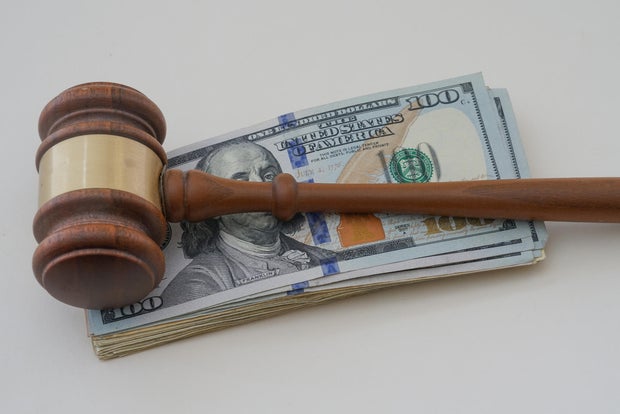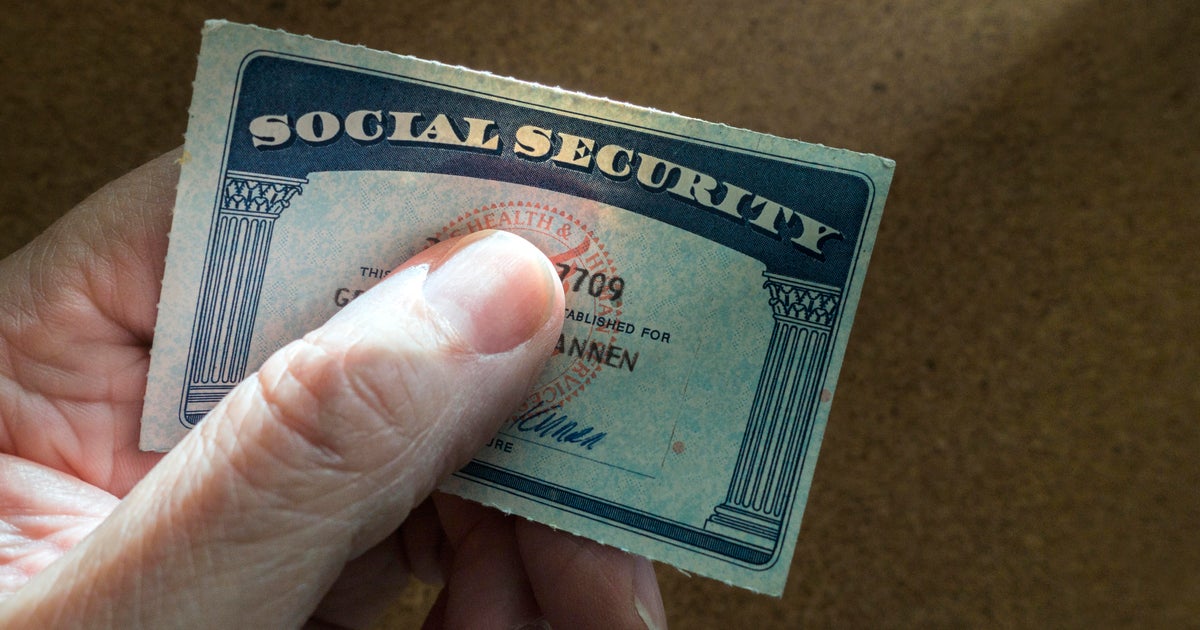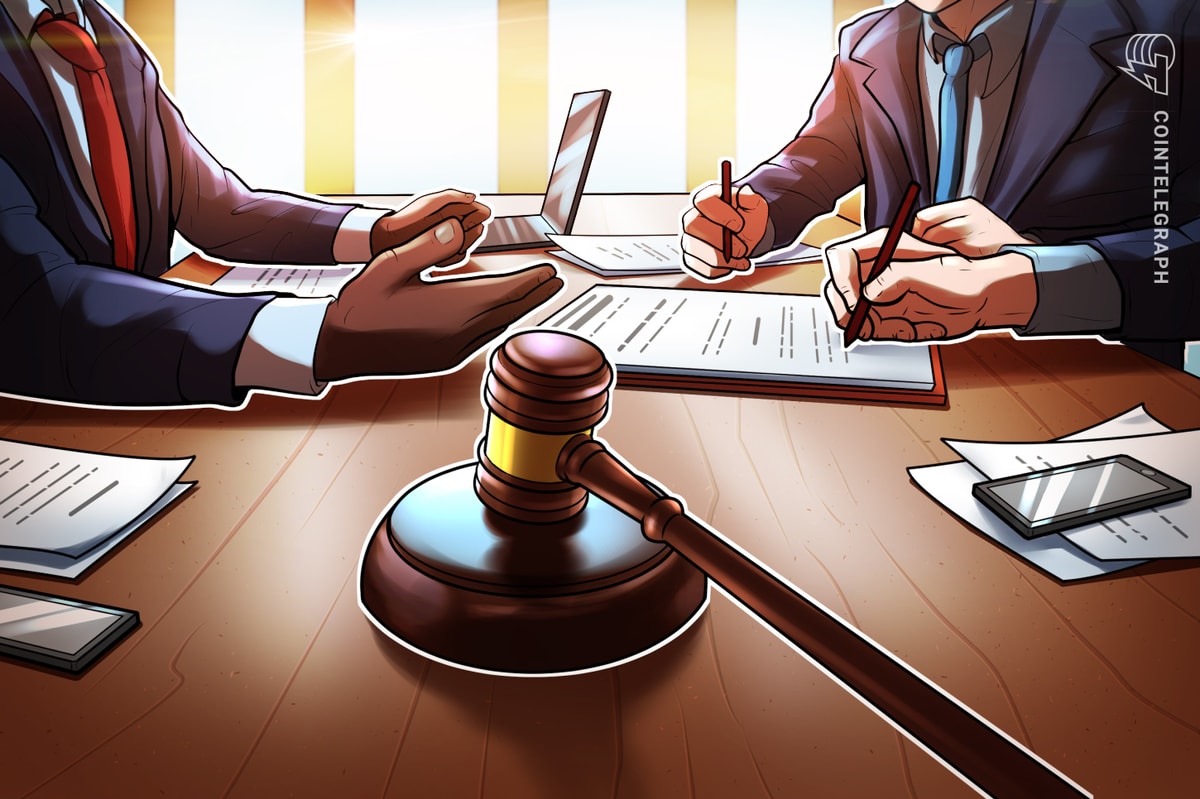 If you're sued over unpaid credit card debt, it can be tough to determine what move to make next.
Wirestock/Getty Images
If you're sued over unpaid credit card debt, it can be tough to determine what move to make next.
Wirestock/Getty Images
Americans are dealing with some serious debt issues right now, especially when it comes to their credit cards. With the total amount of credit card debt nationwide sitting at a record high and with credit card interest rates climbing, more borrowers are struggling to keep up. And when you add in the other economic hurdles borrowers are facing currently, like sticky inflation, things can get even more tenuous. In turn, credit card delinquencies have been rising steadily, and collection activity is following suit.
When debt collection attempts fail, debt collectors and credit card issuers may turn to the courts to try and recoup what they're owed. Getting served with a credit card debt lawsuit can come as a big shock, though, even for those who were well behind on payments. After all, when you're holding official papers with a court date and legal jargon you may not fully understand, it can be tough to determine what move to make next.
Once the initial shock wears off, though, most people are left with a pressing question: How do you deal with a lawsuit like this? Is hiring a lawyer necessary, or are there other ways to handle the situation? That's what we'll examine below.
Start taking control of your high-rate debt problems today.
Do you have to hire a lawyer when you're being sued for credit card debt?
The short answer is no, you don't have to hire a lawyer if you're sued for credit card debt. However, whether you should hire an attorney depends on your circumstances. A lawyer who specializes in debt can be helpful if the amount you owe is substantial, if there are legal complexities or if you believe you have a valid defense. An experienced consumer protection lawyer can help identify issues like expired statutes of limitations, missing documentation or improper service that could lead to dismissal.
That said, credit card lawsuits are often relatively straightforward. In many cases, creditors or debt collectors are suing for a specific amount owed, plus the interest and fees that have accrued to that point. So, if you agree that the debt is valid and you don't dispute the amount, hiring an attorney may not be necessary. You can still respond to the lawsuit yourself and navigate certain outcomes without legal representation.
Responding to the lawsuit, however, is crucial. Ignoring the paperwork won't make the problem go away. In fact, it will make it worse. If you don't file a response within the court's deadline (often 20 to 30 days), the creditor can get a default judgment. That generally allows them to do things like garnish wages, freeze bank accounts or take other collection actions. So, even if you decide not to hire a lawyer, you'll need to act quickly to protect yourself.
Learn more about the debt relief strategies available to you now.
How to handle a debt lawsuit without going to court
While the idea of facing off in court may sound daunting, not all credit card debt lawsuits end up there. In fact, many are resolved well before the trial date. Here are some common ways people handle these situations without setting foot in a courtroom:
Negotiate a settlement or payment plan on your own
If the debt is legitimate and you simply can't pay it all at once, negotiating with the creditor to come up with a solution that works for both parties is often the fastest way to resolve a lawsuit. In these cases, creditors may accept a reduced lump-sum settlement or agree to a structured payment plan to avoid the time and expense of court. Just be sure to get any settlement offer in writing, including details about the amount forgiven and the timeline for repayment, to protect yourself from future disputes.
Get help from a credit counseling agency or debt relief company
If handling negotiations yourself feels overwhelming, you can bring in professional help during the process. For example, credit counseling agencies may be able to review your budget and propose repayment plans to creditors, which could result in reduced interest rates or fees. A debt relief company may also be able to help you settle your debts for less than you owe before the lawsuit advances further. Just make sure to research these organizations carefully. Legitimate debt relief services will be transparent about fees and won't pressure you into signing quickly.
File for Chapter 7 or Chapter 13 bankruptcy
If the debt is overwhelming and you see no realistic way to repay it, filing for bankruptcy may be a strategic way to halt legal action and get a fresh start. Chapter 7 bankruptcy can discharge unsecured debts like credit card balances, while Chapter 13 allows you to restructure and repay them over time through a court-approved plan.
Once you file for bankruptcy, an automatic stay goes into effect, stopping most collection activities, including lawsuits and wage garnishments, while your case proceeds. Bankruptcy isn't right for everyone, but in some cases, it can provide significant relief and protect you from further legal consequences.
The bottom line
Being sued for credit card debt is stressful, but hiring a lawyer isn't always required. For many straightforward cases, especially smaller debts, you can handle the response and resolution yourself. However, if the amount is large, the lawsuit involves complicated legal issues or you want to challenge the validity of the debt, having an attorney can make a significant difference. What matters most, though, is that you don't ignore the lawsuit. Respond promptly and seek help if you need it. Taking action early gives you the best chance to minimize financial damage and move forward with confidence.
Edited by Matt Richardson

.jpeg)

































 English (US) ·
English (US) ·